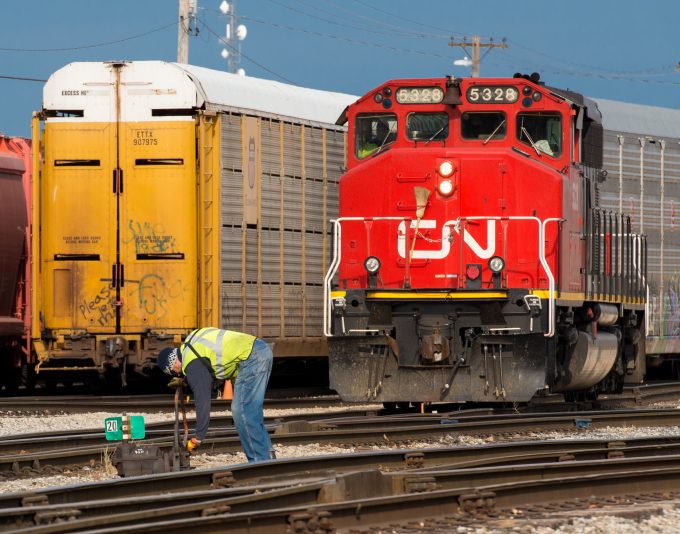Le Havre 'delighted' as Hapag-Lloyd buys into box terminal
Hapag-Lloyd’s port business, Hanseatic Global Terminals (HGT), has acquired a 60% share in CNMP LH, ...

Canadian National (CN) is trying to derail the planned marriage of Kansas City Southern (KCS) and Canadian Pacific (CP) by wooing KCS shareholders with a higher offer.
At US$325 per share for the US rail company, CN’s offer values KCS at $33.7bn, beating the $29bn purchase price rival CP agreed last month.
CN argues that its marriage with KCS would create a pan-USMCA rail operator providing “superior service, enhanced competition and new market access to move goods across North America efficiently and ...
Volcanic disruption at Anchorage could hit transpacific airfreight operations
Shippers snap up airfreight capacity to US ahead of tariff deadline
Forwarders stay cool as US 'liberation day' tariffs threaten 'global trade war'
New price hikes may slow ocean spot rate slide – but for how long?
Tighter EU import requirements proving 'a challenge' for forwarders
Supply chain delays expected after earthquake hits Myanmar
Looming Trump tariffs will create 'a bureaucratic monster' for Customs

Comment on this article